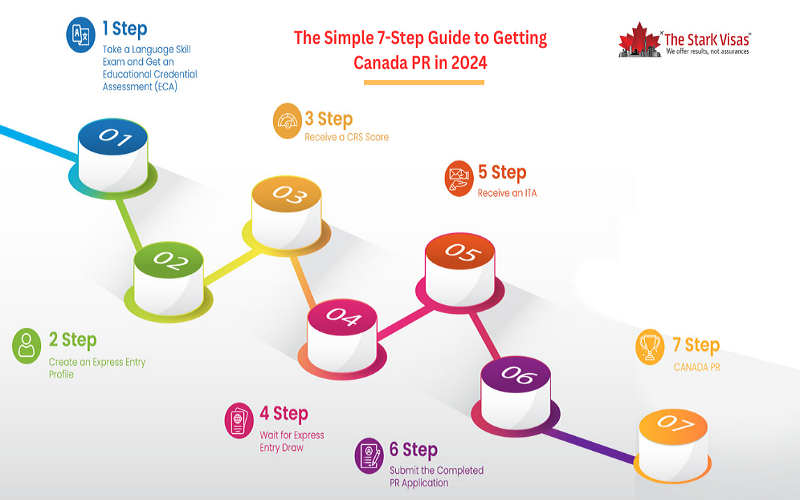Welcome to the wonderful world of Express Entry! As you know, your Comprehensive Ranking System (CRS) score is one of the most important factors in determining whether you will receive an invitation to apply for Canadian permanent residence. Calculating and improving your CRS score can be the difference between getting invited or missing out.
That’s why today, we’re going to walk you through how to accurately calculate your CRS score using the handy CRS calculator. Understanding the components that make up your score will allow you to target the areas you need to improve on. Let’s get started!
What is the Express Entry CRS Score?
The CRS score is how Immigration, Refugees and Citizenship Canada ranks and selects candidates for immigration through the three Express Entry-managed programs – Federal Skilled Worker, Federal Skilled Trades, and Canadian Experience Class.
Your CRS score is out of a total of 1200 points. The higher your score, the better your chances are of getting an Invitation to Apply (ITA) for permanent residence. The minimum CRS score needed for an ITA can change from draw to draw, but tends to be around 450 points.
How is the CRS Score Calculated?
There are three major components that make up your CRS score:
1. Core/Human Capital Factors (maximum 500 points)
- Age
- Level of education
- Official languages proficiency
- Canadian work experience
2. Spouse or Common-Law Partner Factors (maximum 40 points)
- Level of education
- Official languages proficiency
- Canadian work experience
3. Skill Transferability Factors (maximum 100 points)
- Education (if you have a post-secondary degree)
- Foreign work experience
- Certificate of qualification (for those in skilled trades)
In addition, some applicants may be eligible for 600 additional points through:
- Provincial Nomination (600 points)
- Qualified Offer of Arranged Employment (200 points)
- Canadian siblings (15 points)
Using the CRS Calculator
Now that you understand the factors, let’s go through how to actually calculate your score. The Government of Canada provides an online CRS calculator that allows you to input your details and receive your estimated score.
To use the CRS calculator:
- Go to the Official CRS Calculator page.
- Select your Express Entry profile type – either Federal Skilled Worker, Federal Skilled Trades, or Canadian Experience Class.
- Input your personal details like age, education, language ability, work experience, etc. Be sure to have your supporting documents on hand.
- The calculator will provide your estimated CRS score based on the information you provided.
- Review which factors contributed the most or least to your score. This will show you the areas that need improvement.
Pro Tip: You can create multiple profiles and input different scenarios to see which combination gives you the highest score!
Improving Your CRS Score
Once you know your baseline CRS score, you can work on boosting it through:
- Taking language tests to improve proficiency
- Getting more skilled Canadian work experience
- Obtaining a post-secondary degree or educational credentials
- Finding a provincial nomination or job offer
The key is targeting the factors that will give you the most extra points. Even small improvements of 10-20 points can make a difference!
Calculating your Express Entry CRS score is a crucial step in your Canadian immigration journey. Use the CRS calculator to get a detailed understanding of where you stand and how to maximize your ranking.
Remember, every point counts when it comes to getting that coveted ITA! So take the time to accurately determine your score, identify gaps, and find ways to boost your CRS. You’ll be on the pathway to permanent residency in Canada in no time.
Let us know if you have any other questions! We’re always happy to help.
The Importance of Maximum Points in Each Area
To get the highest possible CRS score, it is important to maximize your points in each section. Let’s take a closer look:
Core/Human Capital Factors:
- Age – You can get maximum points if you are under 29 years old. Points start decreasing from age 30 onwards.
- Education – Strive for a Master’s, Professional Degree, or Ph.D to get more points. The higher the credential, the more points awarded.
- Official Languages – Target getting CLB 9 or higher in English and/or French to get the full points.
- Canadian Work Experience – 1 year of skilled work in Canada gives you 100 points. You can get up to 200 points for over 5 years of experience.
Spouse Factors:
Have your spouse or common-law partner take language tests and skill upgrading courses to improve their education, language, and work experience scores. Their points will be added to yours.
Skill Transferability Factors:
Educational Credential Assessment – Get your international degrees and diplomas evaluated to prove their Canadian equivalence.
Foreign Work Experience – Get your foreign experience officially assessed through World Education Services or Comparative Education Service.
Provincial Nomination:
Research PNP programs you are eligible for. Each province has their own criteria based on skills, education, work experience and connections to the province.
The provincial nomination can give you 600 additional points, so it is worth pursuing.
Arranged Employment or Sibling in Canada:
Connect with employers willing to support your PR application through a valid job offer. This can give you 200 extra points.
If you have a sibling who is a PR or citizen, you can get 15 extra points.
Aim to get the full allotment of points available in each factor. The smallest boost in your score can help you reach that coveted ITA!





